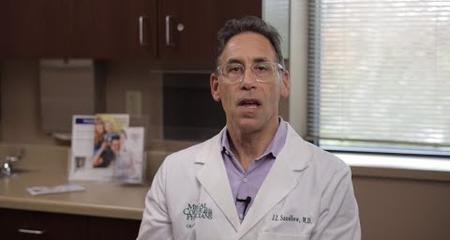Many health concerns and their treatment, including cancer, genetic disorders and autoimmune diseases, may affect fertility. If you intend to have children, it's important to know how a disease or disorder may affect your reproductive abilities — especially before you begin treatment. There are a number of alternatives for men and women facing health concerns or treatment that may compromise fertility.
- Egg freezing — Women at risk of ovarian failure from cancer treatment or medical conditions can have their unfertilized eggs preserved for later use.
- Medication — If doctors determine that chemotherapy would damage a woman’s ovaries, medication may be used to temporarily shut down ovarian function, making them less susceptible to chemotherapy drugs.
- In vitro fertilization — IVF uses an egg and sperm to create an embryo outside the woman's body. Embryos can be frozen and not transferred to the woman’s uterus until after she has completed treatment.
- Ovary transposition — To prevent damaging the ovaries during cancer radiation therapy, surgery can be performed to move the ovaries out of the way of the radiation beam.
- Sperm freezing — Cryopreservation is a safe and effective means for preserving a man's sperm before cancer or other medical treatment.
- Testicular tissue freezing — For men who can no longer produce sperm or ejaculate, sperm can be retrieved from testicular tissue. The tissue can be removed and frozen until a man is ready for a child.
LiveStrong Fertility Discount Program
The Reproductive Medicine Center participates in the LiveStrong Fertility Discount Program, helping individuals who have been diagnosed with cancer retain the hope of future fertility, regardless of financial means. The LiveStrong program helps defray the costs of fertility preservation for qualified men and women who are Froedtert & MCW cancer patients. For more information, please ask your fertility provider.
Preserving Fertility After a Cancer Diagnosis
For patients and families who are going through treatment for cancers or blood disorders, it’s important to understand when the treatment or diseases process creates risk or the potential to harm fertility.
For adolescent and young adult patients, we partner with Children’s Wisconsin through the Adolescent and Young Adult Cancer Program (AYA) to ensure our patients and their families have the information they need to make the best decisions for their future and their family. For both adolescent patients seen at Children’s Wisconsin and adult patients seen by the Froedtert & MCW health network, fertility discussion is ongoing from diagnosis through survivorship care.
Fertility preservation options may be available to consider for both male and female patients, before or after treatment ends. The below videos help outline the fertility consultation and preservation process for male and female patients, including the role of the CHW fertility nurse navigator for adolescent and young adult patients.
Freezing Eggs
Freezing Sperm
More to Explore





